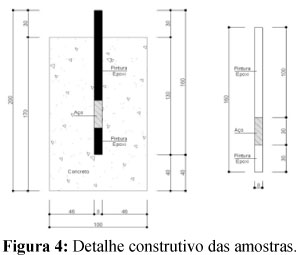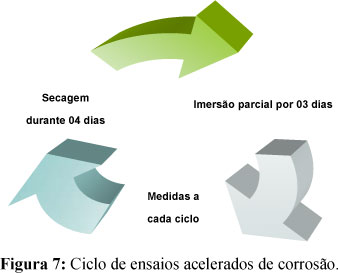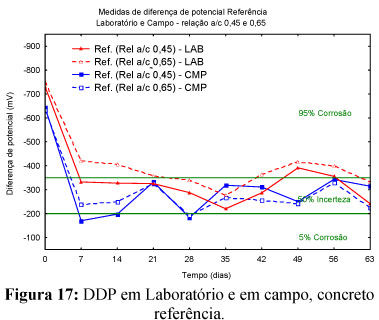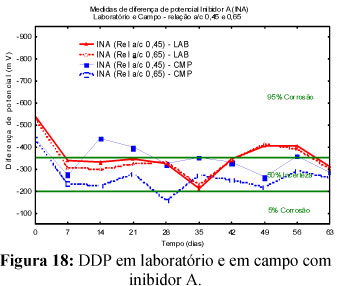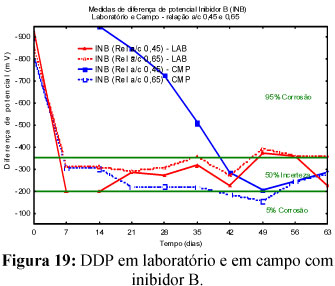Corrosion is a phenomenon that affects the whole of society, such that great socioeconomic importance is attributed to its effects. In the area of the engineering, numerous consequences of the corrosive process exist, like that which occurs in steel reinforcement of concrete structures. With the intention of providing structural safety and durability, the chemical industry and companies that supply construction products market different forms of protection against corrosion. This work presents analyses of measurements of corrosive potential conducted on samples of steel-reinforced concrete, with different water/cement ratios, fabricated with and without corrosion inhibitor and exposed to two environments containing chloride: in the field, exposed to the unpredictable weather of the marine environment of the southern coastal region of Santa Catarina; and in the laboratory, exposed to a cyclical process of corrosion acceleration through partial immersion (solution containing chloride) and drying in a heater. The specimens were maintained for a period of 63 days in the respective environments. Corrosion by chloride solution in the laboratory proved to be the most aggressive and efficient system for evaluating corrosive potential. The results aimed to characterize the efficiency of the corrosion inhibitors used, denominated inhibitor A, inhibitor B and inhibitor C. After completing the analyses, it was possible to classify these regarding their performance in environments contaminated by chloride: inhibitor B > inhibitor C > inhibitor A. Reduction in the water/cement ratio (0.45) improved the performance of the reference concrete and the three types of corrosion inhibitors studied. Modification of the mechanical properties of the concretes with corrosion inhibitors was verified, which could lead to the development of more impermeable and durable concrete.
Chemical Additive; corrosion inhibitors; concrete structures




